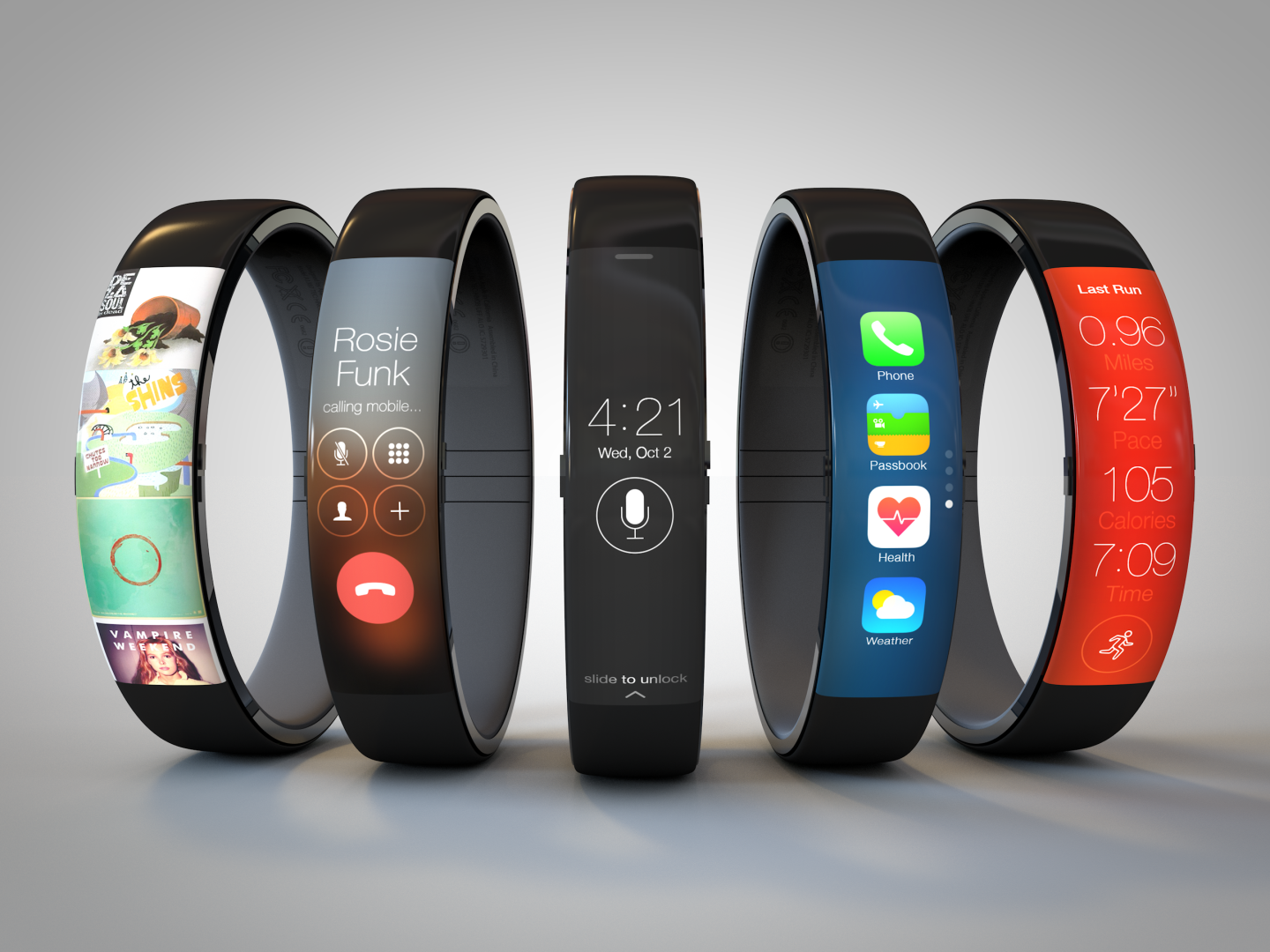As a lover of the Ghost in the Shell series and sci-fi like it, I’m always looking for cool ways to become a cyborg. Wearable devices like Google Glass or the watches that have been surfacing recently would seem to be leading us in that direction. Too bad I don’t think they’re usable enough yet.
My Wearable Smartphone is Ugly!
So far, the wearable devices I’ve seen are not sleek or minimal. They don’t compliment an outfit. They stand out like Dick Tracy’s watch. Gaudy, clunky, distracting. I can barely get used to wearing my wedding ring and that doesn’t need to be big enough to use as a touch screen or heavy from an internal camera, compass, cellular gizmos, etc.
The day I wear a smartphone is the day when the screen encompasses at least 60% of the device so I can set my lock screen wallpaper to match my current outfit. On top of that it still has to be flexible enough to wrap around my wrist or be flattened out to use with precision for playing Epic Empire or Plants Vs. Zombies. I think we’re still many years away from that, but it will happen in my lifetime. They’ve been worked on for several years now.
Voice Control
Have you ever stood on a city sidewalk and tried to ask Siri a question? Have you ever tried to use a voice activated automated customer service menu on a bus without disturbing other people? Have you ever tried to talk to your Xbox Kinect while your roommate is talking to someone else about the Xbox?
If you answered yes to any of those, you probably know my objections to using voice controlled devices in public.
If you answered no, I can elaborate. Voice recognition is terrible in noisy, uncontrolled environments. The Kinect at least stays in your home and can filter out the consistent room noise and the sounds the Xbox outputs itself. It would also guarantee that it’s listening to the right commands because it’s unlikely to have two full entertainment centers in a single room for most homes.
A device you carry around with you wherever you go wouldn’t be able to make those assumptions. The noise around you would vary immensely from second to second &mash; in volume, pitch, frequency, and type.
If the device’s trigger phrase is “Google” and you can tell it to do whatever you want it to do, what’s stopping someone else from telling your phone to do things?
Google, find images for blue waffle.
Me, standing nearby mimicking your voice
Or what about other people on the bus who aren’t as mischievous as me? What happens when someone else nearby has the same device and their commands interfere with yours?
When will wearable smartphones be ready?
I suspect that if they ever really become popular it will be because of one of these reasons:
- “Traditional” smartphones go the opposite direction that they are currently and get smaller. At that point, having them in your pocket or purse will be more annoying than wearing a wristband or necklace.
- People stop using their phones for email, which is also the opposite direction that things are going right now. More people read their email on their phone than on their computer now. I can’t envision myself ever wanting to read long portions of text on a small screen, especially not one located on my wrist.
- The wearable smartphones become a fashion accessory instead of a consumer electronic device. For this, they have to be versatile, cool-looking, and not try to take over for your smartphone, but used in concert with it.
I think #3 is most likely, and that’s why I maintain my stance that I mentioned earlier. Make it look unique, cool, and flexible, and you’ll see me jump on the bandwagon.
